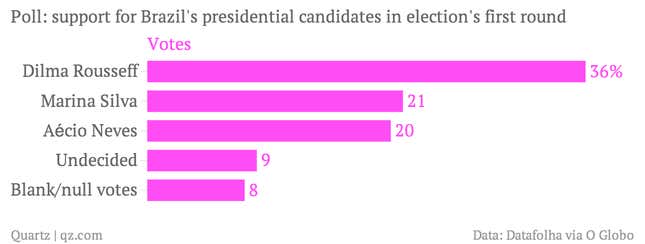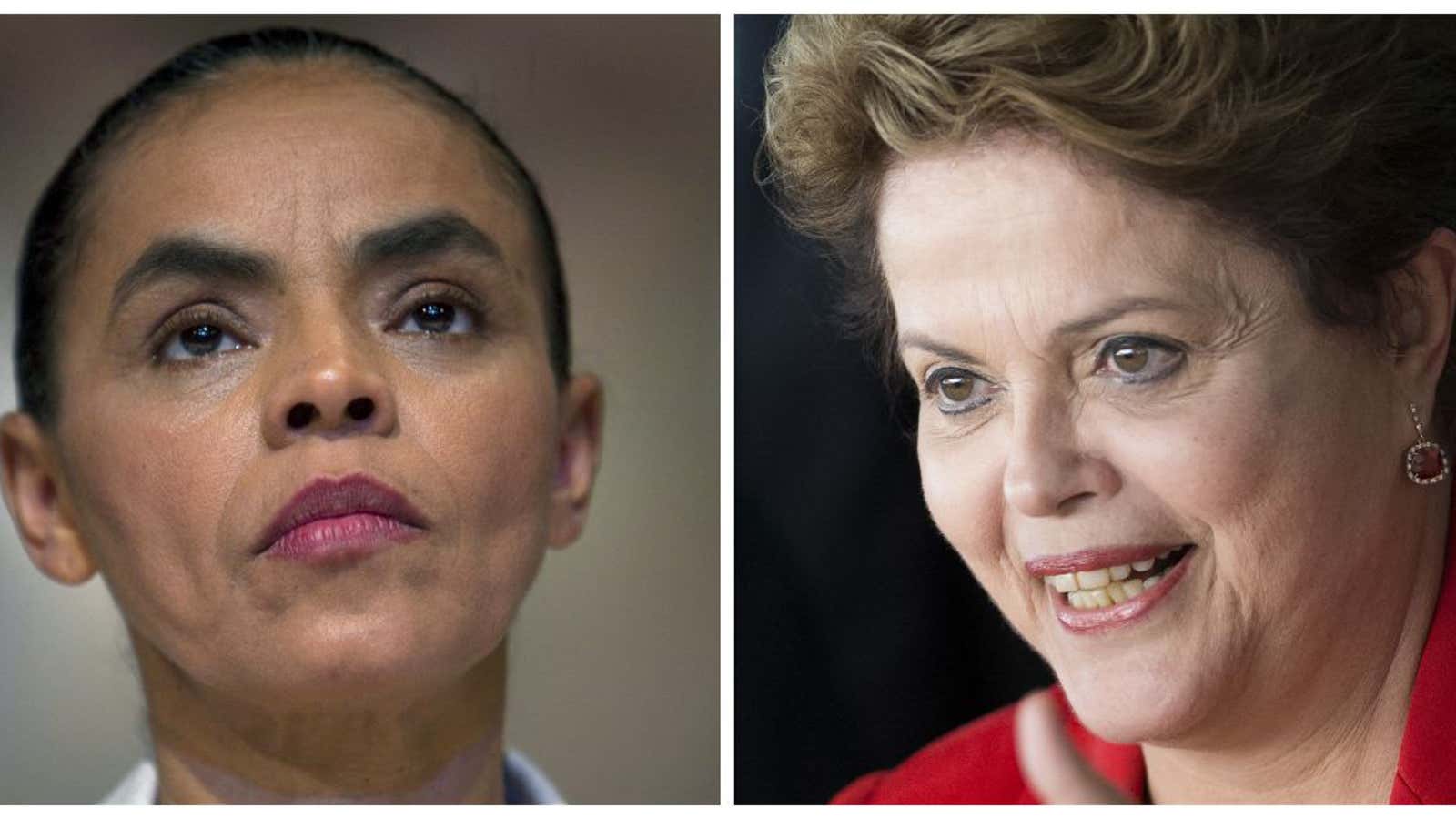In the wake of Brazilian presidential candidate Eduardo Campos’ death in a plane crash last week in Santos, Sao Paulo, there has been much discussion over who would succeed him as the Brazilian Socialist Party’s (PSB) candidate. Now, it appears the PSB will officially announce Campos’ vice-presidential running mate Marina Silva’s candidacy at a meeting on Aug 20.
A winding political road to the presidential ticket
Although Silva’s succession to Campos seems logical—she was his vice-presidential candidate, after all—her path to the PSB was indirect. Silva only joined Campos’ ticket after her attempt to register a new political party, the Sustainability Network, fell short of the authenticated signatures required last year.
In 2010, Silva ran for president on the Green Party ticket and came in at a respectable third place, having earned a reputation for tough efficiency as environment minister under former president Luis Inácio Lula da Silva. More than 700 people went to prison for environmental crimes (link in Portuguese) and deforestation slowed during her tenure. But Silva very dramatically resigned in 2008, to protest Lula’s support of development in the rainforest.
Activism in the Amazon
Like president Dilma Rousseff, a former guerrilla who smuggled weapons and was brutally tortured during Brazil’s military dictatorship, Silva has an inspiring back story of overcoming adversity and becoming a leading activist before entering electoral politics.
She was born to a family of rubber-tappers in Acre, one of Brazil’s poorest states, in the Amazon. She lost two of her 10 siblings to malaria, and was the only one to regularly attend school. At age six, she contracted mercury poisoning—an affliction that still keeps her from shellfish, lactose, red meat, alcohol, and cosmetics. At 16, barely literate and newly orphaned, she left home for the state capital, where she worked as a maid, considered becoming a nun, got a college education, and perhaps most importantly, met the now legendary union and environmental activist, Chico Mendes. With Mendes, himself a former rubber tapper, Silva helped establish a workers union for rubber tappers in Acre to fight the destruction of their livelihood and home. (Mendes was murdered in 1988.)
Then, at 35, she was elected Brazil’s youngest female senator.
Now, she might be the next president
According to data collected last week by Brazilian polling institute, Datafolha, Silva stands a fighting chance of unseating incumbent president Dilma Rousseff (who was booed at Campos’ funeral on Sunday) come October. Brazil’s voting system requires a candidate to win more than 50% of votes to avoid a second-round runoff; polls show Rousseff would get 36% and Silva 21%—just ahead of Brazilian Social Democracy party candidate Aécio Neves, and within the 2% margin of error.

Presented with Rousseff and Silva in a runoff, 47% of the 2,843 polled chose Silva, putting the two candidates just about neck-and-neck. (Pitted against Neves, Rousseff came out on top with 47% to Neves’ 39%.)

